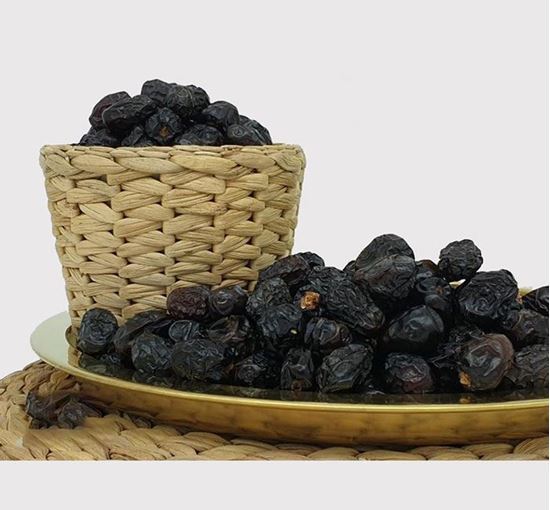
The Sweet Secrets: Exploring the Price of a Box of Dates
For many, dates are more than just a nutritious snack; they symbolize tradition, culture, and indulgence. But what exactly determines the price of a box of dates? Join us as we delve into the factors influencing the cost of dates and explore whether their affordability aligns with their nutritional value.
Introduction: Deciphering the Cost of Dates
The term “harga kurma sekotak” translates to “price of a box of dates” in English. In many cultures, particularly in regions where dates are commonly consumed, purchasing dates in bulk or by the box is a common practice. The phrase “harga kurma sekotak” signifies the cost associated with acquiring a box of dates, which can vary depending on several factors.
When considering the meaning of “harga kurma sekotak,” it’s essential to understand the cultural and dietary significance of dates in the regions where they are prevalent. Dates hold symbolic value in many cultures, often associated with hospitality, generosity, and religious observances. As such, purchasing a box of dates may signify not only a practical transaction but also a gesture of goodwill or celebration.
The cost of a box of dates, or “harga kurma sekotak,” can fluctuate based on various factors, including the quality, origin, and variety of dates included in the box. Premium varieties of dates, such as Medjool or Ajwa dates, sourced from renowned regions, may command a higher price due to their superior taste, texture, and nutritional value. Conversely, dates of lesser-known varieties or those harvested during off-seasons may be more affordably priced.
Understanding the meaning of “harga kurma sekotak” goes beyond mere monetary value; it encompasses the cultural, social, and culinary significance of dates in the communities where they are enjoyed. Whether purchased for personal consumption, gifting, or sharing during festive occasions, a box of dates represents more than just a transaction—it symbolizes tradition, generosity, and the shared enjoyment of nature’s sweet bounty.
Understanding the Price Range of Dates
Factors Influencing the Cost
Quality and Origin
The quality and origin of dates play a significant role in determining their price. Dates grown in specific regions renowned for their ideal climate and soil conditions often command higher prices due to their superior taste, texture, and overall quality. For example, Medjool dates from the Middle East, particularly those from regions like Israel or Jordan, are highly sought after for their large size, soft flesh, and rich flavor. These premium Medjool dates undergo meticulous cultivation and harvesting processes, including hand-picking and careful sorting, to ensure they meet strict quality standards. As a result, they tend to fetch a premium price compared to dates from other regions.
In contrast, dates from lesser-known or less-established growing regions may be more affordably priced due to lower demand or perceived quality. However, this doesn’t necessarily mean they are inferior in taste or nutritional value. Some lesser-known varieties, such as Barhi or Khadrawy dates, offer unique flavor profiles and textures that appeal to discerning palates. Factors such as soil composition, water quality, and farming practices also influence the quality of dates, regardless of their origin. Ultimately, consumers may choose dates based on their personal preferences, budget, and desired culinary applications, weighing the balance between quality and affordability.
Harvesting Season and Availability
The timing of the harvest season and the availability of dates can influence their price. Dates harvested during peak seasons when the supply is abundant typically command lower prices due to increased availability. Conversely, dates harvested during off-seasons or in regions with limited production may be priced higher due to scarcity.
Are there any potential downsides to consuming dates in excess?
Examining the Downsides of Excessive Date Consumption
High Sugar Content
While dates offer a plethora of health benefits, they are naturally high in sugar, primarily fructose and glucose. Consuming dates in excess can lead to a spike in blood sugar levels, especially for individuals with diabetes or insulin resistance. It’s essential to monitor portion sizes and be mindful of overall sugar intake, especially if you’re watching your blood sugar levels.
Caloric Density
Dates are relatively calorically dense, meaning they provide a significant amount of calories in a small serving size. While these calories come from natural sugars and are accompanied by fiber and nutrients, overindulging in dates can contribute to weight gain if not balanced with other aspects of your diet and lifestyle. Moderation is key to enjoying dates without exceeding your daily caloric needs.
Digestive Discomfort
Due to their high fiber content, consuming large quantities of dates in one sitting can sometimes lead to digestive discomfort, such as bloating, gas, or diarrhea. This is especially true for individuals who are not accustomed to high-fiber foods or have sensitive digestive systems. It’s essential to listen to your body and consume dates in moderation to avoid any digestive issues.
Conclusion
In conclusion, the price of a box of dates is influenced by various factors, including quality, origin, harvesting season, and availability. While dates offer numerous health benefits and are a delicious addition to any diet, consuming them in excess can have potential downsides, such as high sugar content, caloric density, and digestive discomfort. By enjoying dates in moderation and being mindful of portion sizes, you can reap their nutritional benefits without experiencing adverse effects.
Key Highlights:
– The cost of dates is influenced by factors such as quality, origin, harvesting season, and availability.
– Consuming dates in excess can lead to potential downsides, including high sugar content, caloric density, and digestive discomfort.
– Enjoying dates in moderation allows you to reap their nutritional benefits without exceeding your dietary needs.